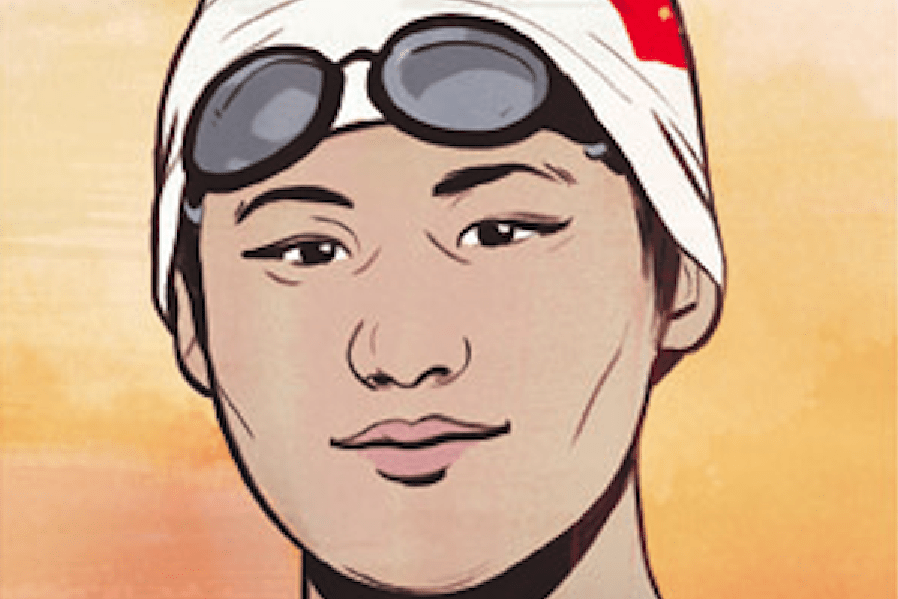The Chinese have excelled at London 2012, much to the annoyance of their Western rivals. In this week’s issue of the Spectator, Ross Clark argues that the claims against swimmer Ye Shiwen reflect irrational suspicion of her country. Here is an edited version of Ross’s article (you can read the full version here):
The story of London 2012 has been that of a country which was once an underachiever in the Olympics but which, through sheer hard work on the part of its athletes, has hauled itself to the top of the medals tables, producing in the process one of the most dramatic world records in Olympic history.
I refer, of course, to the People’s Republic of China. But this is not a story you will have picked up from the BBC or the press. Rarely can a sporting performance have been met with such resentment as that of 16-year-old Ye Shiwen in the 400 metres women’s medley. She had hardly wiped the drops from her goggles before the US swimming coach John Leonard was making coded accusations of drug use. Her offence, it seems, was to have swum faster than the all-American winner of the men’s event, Ryan Lochte.
When Ye Shiwen won a second gold medal, she enjoyed none of the adulation showered on other multiple winners. Then, two days later, the whole issue went quiet. What had happened? Ye Shiwen had passed the drugs test to which all medal winners are subjected. She wasn’t a drugs cheat after all.
Deprived of the opportunity to accuse her of doping, the nation’s Sinophobes changed tack. Obviously she was the product of a ‘brutal training regime’. Then came the extraordinary accusation that she might have been genetically modified. BBC’s Newsnight entertained the fantasy that athletes might be having their genes modified — interspersed with clips of Ye Shiwen winning her medals. After 15 minutes of this, the scientists invited on the programme admitted that there was no evidence it was possible to manipulate genes in this way. Funny enough, none of Michael Phelps’s or Usain Bolt’s performances have provoked such wild speculation. As for the brave boys and girls of Team GB, if some Twitterer dared to accuse them of using drugs or the services of Dr Frankenstein, I suspect they would be collared by the constabulary within the hour.
But the Chinese are different: you don’t need any evidence to chuck accusations of cheating at them. Sinophobia is the one form of racism which remains socially acceptable. As everyone knows, China just nicks our ideas and sells them back to us at half the price, thanks to the coolies who must work 18 hours a day and are apt to disappear if they complain. China has an appalling human rights record, but some of the sinister practices attributed to it go on in every western country. The stadium in Stratford, like Beijing’s Bird’s Nest, required property to be compulsorily purchased and tenants forcibly relocated — and the same happens everywhere in order that public projects can be built.
The controversy over Ye Shiwen has become a proxy for the fuss over the Chinese economy. Many in the West have attempted to construct a narrative in which the crash is China’s fault. US presidential hopefuls — including Barack Obama in 2008 — accuse China of suppressing the real value of the yuan. It is a line eagerly adopted by Mitt Romney, who has said that he will declare China a currency manipulator and place tariffs on imports.
There is nothing manipulative, of course, about printing money (in the form of QE) to depress your currency. What, exactly, is China’s economic crime other than to have bought US treasuries, enabling the US government to spend money without raising taxes? China’s rapid growth is just the age-old story of a low-cost economy enjoying the boost of low labour rates.
Four years ago, Beijing was mocked for the megalomania of its Olympics, accused of spending a fortune on a vanity project as its poor went forgotten, trying to use a visual spectacle to blind the world to the reality of life in the country, and splashing a fortune to train its athletes. If they are faults, they are ones of which London 2012 has become equally guilty. We seem to have nicked China’s big idea.







Comments